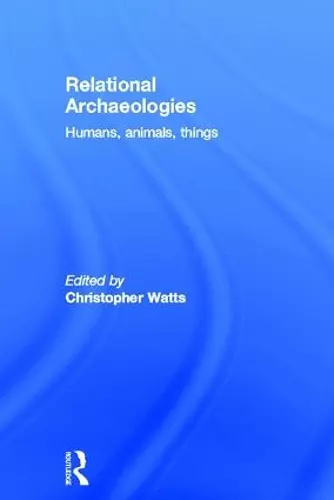Relational Archaeologies
Humans, Animals, Things
Format:Hardback
Publisher:Taylor & Francis Ltd
Published:31st May '13
Currently unavailable, and unfortunately no date known when it will be back
This hardback is available in another edition too:
- Paperback£37.99(9780415525329)

Many of us accept as uncontroversial the belief that the world is comprised of detached and disparate products, all of which are reducible to certain substances. Of those things that are alive, we acknowledge that some have agency while others, such as humans, have more advanced qualities such as consciousness, reason and intentionality. So deeply-seated is this metaphysical belief, along with the related distinctions we draw between subject/object, mind/body and nature/culture that many of us tacitly assume past groups approached and apprehended the world in a similar fashion. Relational Archaeologies questions how such a view of human beings, ‘other-than-human’ creatures and things affects our reconstruction of past beliefs and practices. It proceeds from the position that, in many cases, past societies understood their place in the world as positional rather than categorical, as persons bound up in reticular arrangements with similar and not so similar forms regardless of their substantive qualities. Relational Archaeologies explores this idea by emphasizing how humans, animals and things come to exist by virtue of the dynamic and fluid processes of connection and transaction. In highlighting various counter-Modern notions of what it means ‘to be’ and how these can be teased apart using archaeological materials, contributors provide a range of approaches from primarily theoretical/historicized treatments of the topic to practical applications or case studies from the Americas, the UK, Europe, Asia and Australia.
“Ontologies, and the allied concepts of personhood, relationality and perspectivism, are hot topics these days in archaeology and anthropology. Relational Archaeologies convinced me, at any rate, that they are more than just the latest buzzwords; they offer new and rewarding ways to approach our material. These concepts are most often applied to foragers and horticulturalists, so it is particularly noteworthy that this volume demonstrates their value for a wide range of societies, including complex, urban ones… This book merits reading cover to cover.” - Nerissa Russell, Cornell University
ISBN: 9780415525312
Dimensions: unknown
Weight: 660g
272 pages